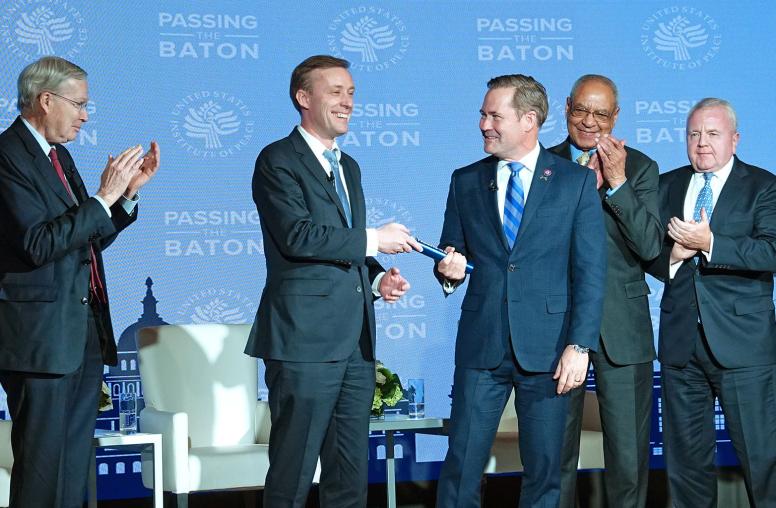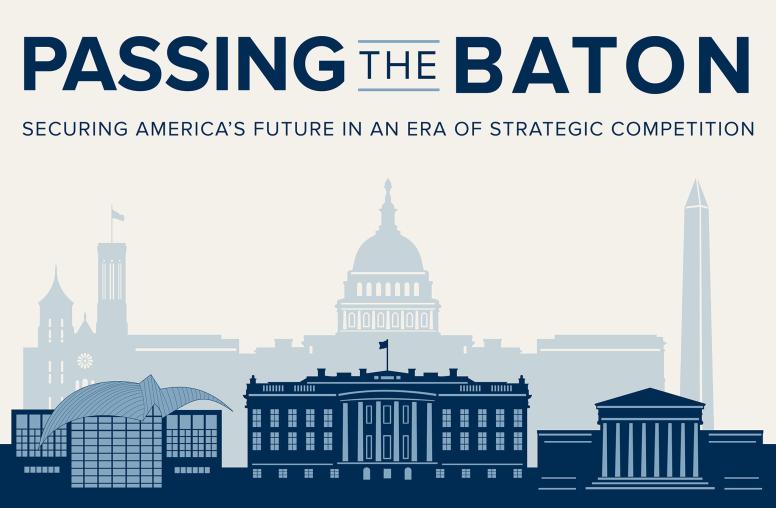Global Terrorism after the Iraq War
Institute Newsbyte explores shifts in the terrorist threat in the wake of the Iraq war and its implications for the overall war on terrorism.
WASHINGTON—Since 9/11, two major U.S. national security priorities have been to prevent further terrorist attacks against U.S. targets, and to disable terrorists with a demonstrated or potential global reach. Among the stated purposes of the Iraq war was to expunge a supposed connection between the government of Saddam Hussein and al Qaeda, and to prevent the proliferation of weapons of mass destruction (WMD) to states and terrorist groups. While few have denied the benefits of a Hussein-less Iraq, the failure to locate evidence of a terrorist connection or WMD within Iraq has led some to question the wisdom of the decision to commit America to war there. Some have even suggested that the war may in fact bring about an increase in terrorist activity.
On June 26, 2003, the U.S. Institute of Peace hosted a Current Issues Briefing entitled "Global Terrorism after the Iraq War." The participants were terrorism experts Daniel Benjamin of the Center for Strategic and International Studies and former Institute senior fellow; Daniel Byman of Georgetown University and contributor to an Institute multi-case study on previous counter-terrorism campaigns; Martha Crenshaw of Wesleyan University, a former Institute grantee and long-time consultant on political violence work at the Institute; and Paul Stares, director of the Institute's Research and Studies Program and a specialist on emerging challenges to international peace and security.
The views summarized below reflect the discussion at the meeting; they do not represent formal positions taken by the Institute, which does not advocate specific policies.
The Good News
Even among those who opposed the Iraq war, there is general consensus that removal of Saddam Hussein was a fundamental requirement for the democratization of Iraq. And, while the work of democracy building promises to be a long and arduous process, U.S. special envoy L. Paul Bremer is generally seen to be making the right decisions with regard to delays in getting new leadership installed until the infrastructure that supports democratic institutions can be put in place. Separately, with increased law enforcement, intelligence, and security measures since 9/11, the United States has made substantial progress in capturing terrorist leaders and dismantling al Qaeda bases in Central and South Asia, the Middle East, and Africa. There has been no major attack on U.S. soil since 9/11.
The Bad News
The connection between the war on terrorism and the war in Iraq is somewhat tenuous, one panelist noted. There is no solid evidence that al Qaeda or other terrorist groups received support from the former Iraqi regime. Nor have any weapons of mass destruction or ancillary products or technology been found, although some may have been "privatized" by the Hussein regime before or during the war. The identification of these questionable threats as motives for the war has harmed relations with some U.S. allies, weakened fragile alliances, and worsened already negative perceptions of U.S. motives, especially in the Muslim world. As such, triumphalism in the Iraq war's wake, with so much unfinished business and so many peripheral and complex issues at stake, is counter-productive in that it distracts from the work at hand.
While U.S. military occupation of the seat of the caliphate is generally accepted in the West as a necessary part of post-conflict stabilization and reconstruction, the extended presence of large numbers of American troops in Iraq will likely promote the perception—particularly among young and potentially radical Muslims—that the United States harbors an anti-Islamic bias. The withdrawal of American troops from Saudi Arabia will probably do little to offset such perceptions.
Further, with unfinished business in both Afghanistan and Iraq, U.S. troops are considerably stretched, hostility towards Syria and Iran, both highly nationalistic countries, has made even solid U.S. allies blanch. Any U.S. action against either is likely to reinforce simmering anti-American sentiment, engender greater nationalistic fervor in these countries, and produce more jihadist recruits. Despite the obvious risks, an increase in U.S. troop presence in the Gulf may be a necessary measure to ensure force protection, achieve immediate security goals, and assist in setting reconstruction efforts on a solid trajectory. However, for anti-U.S. terrorists, increased force protection may translate to an enhanced preference for attacking soft U.S. targets such as civilians abroad.
The Future of Global Terrorism
The nature of the grievance matters. Many analysts think it should no longer be considered apologist to cite root causes of terrorism. Poverty, developmental imbalances, and the disparity between the haves and have nots, continue to be salient issues requiring urgent attention under the globalization rubric. While over the long term, the effects of soft power tactics remain unknown until tried, efforts to resolve historical and political grievances may well do more to promote peace and a reduction in anti-western hostility than do coercion, war, and military occupation. Cultural and educational exchanges, genuinely fair trade arrangements, and diplomacy generally would help make democracy more palatable to skeptics and improve the U.S. image abroad. It would be more helpful for the United States to overtly back indigenous institutions supporting cultural exchange and tolerance, rather than covertly backing dubious resistance movements.
Better information, provided in a more benevolent and trustworthy fashion than that offered by radical Islamists, could be America's best defense. U.S. domestic policies that have the appearance of targeting Muslim minorities are reverberating throughout the world. Instead of officious dismissal, expanded public diplomacy would clarify these policies to an attentive global audience.
Stability in Iraq, if achieved, will greatly help the war on terrorism, in that a genuine, successful, and coordinated state-building effort with an appropriate and transparent exit strategy will do much to reduce anti-American sentiment in the region. A disorderly and increasingly violent Afghanistan has proven to be no model for creating an environment for democratization and post-war recovery, but has proven that limited engagement without an effective post-war peacekeeping plan backfires politically and fails operationally. Negotiations with countries in the Middle East and Central/South Asia to gain their assistance in reconstruction efforts in Iraq and Afghanistan, and the rebuilding of international alliances and cooperation generally, would go far to rebuild U.S. credibility worldwide.
Rather than a snake to be decapitated, terrorism is more like a mold, noted a U.S. official recently. Root causes remain relevant, and long-term prevention of decaying fungal growth (so to speak) will go far toward ensuring healthy relations with the Muslim world. Lessons should be learned from Israel's strategy of pre-emption against radicals, and the resulting chronic intractability and cycle of revenge it produces. Hamas, Hezbollah, and even al Qaeda are examples of terrorist groups that often are the main providers of key services to disenfranchised and war-ravaged populations. In so doing, they consolidate a base for spreading violent jihadist ideology. Preventing the growth of such ideology will depend on displacing cycles of violence with genuine initiatives geared toward peace, democratic reform, economic development, and the redress of grievances within affected populations, which in turn may reveal new avenues for reducing the threat of terrorist violence.
This Newsbyte was written by Suzanne Wopperer of the Institute's Office of Public Outreach. The views summarized above reflect the discussion at the meeting; they do not represent formal positions taken by the Institute, which does not advocate specific policies.



